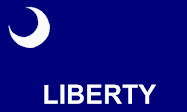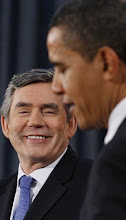Monday, March 25, 2013
Monday, March 18, 2013
Whittaker Chambers, minds of the Popular Front
The overwhelming might of the opposition came from people who had never been Communists and never would be. They were people who believed a number of things. Foremost among them was the belief that peace could be preserved, World War III could be averted only by conciliating the Soviet Union. For this no price was too high to pay, including the price of willful historical self-delusion... They were much too intelligent really to believe that Russia was a democracy or most of the other upside-down things they said in defense of it. Hence like most people who have substituted the habit of delusion for reality, they became hysterical whenever the root of their delusion was touched, and reacted with a violence that completely belied the openness of mind which they prescribed for others. Let me call their peculiar condition which, sometimes had unconsciously deep, and sometimes very conscious, political motives that it would perhaps be unmannerly to pry into here – the Popular Front mind.
Nor can it be repeated too often that most of those who suffered from it were not Communists. Yet Communists, at a critical spin of history, had few more effective allies. The Popular Front mind dominated American life, at least from 1938 to 1948, and it is still grossly premature to count it out. Particularly, it dominated all avenues of communication between intellectuals and the nation. It told the nation what it should believe; it made up the nation's mind for it. The Popular Fronters had made themselves the "experts." They controlled the narrows of news and opinion. And though, to a practiced ear, they never ceased to speak as the scribes, the nation heard in their fatal errors the voice of those having authority. For the nation, too, wanted peace above all things, and it simply could not grasp or believe that a conspiracy on the scale of communism was possible or that it had already made so deep a penetration into their lives...
-Whittaker Chambers 1951, page 499 of Witness
Nor can it be repeated too often that most of those who suffered from it were not Communists. Yet Communists, at a critical spin of history, had few more effective allies. The Popular Front mind dominated American life, at least from 1938 to 1948, and it is still grossly premature to count it out. Particularly, it dominated all avenues of communication between intellectuals and the nation. It told the nation what it should believe; it made up the nation's mind for it. The Popular Fronters had made themselves the "experts." They controlled the narrows of news and opinion. And though, to a practiced ear, they never ceased to speak as the scribes, the nation heard in their fatal errors the voice of those having authority. For the nation, too, wanted peace above all things, and it simply could not grasp or believe that a conspiracy on the scale of communism was possible or that it had already made so deep a penetration into their lives...
-Whittaker Chambers 1951, page 499 of Witness
Subscribe to:
Posts (Atom)





















